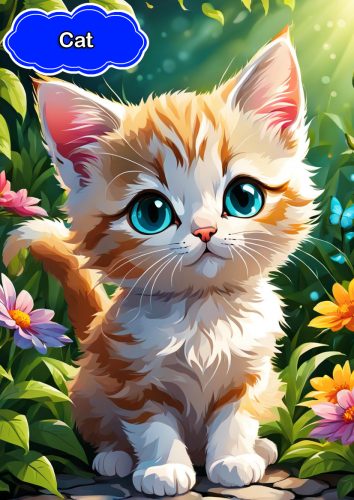
Domestic cats are full of intriguing quirks and characteristics that many people may not know about:
- Whisker Fatigue: Cats can experience whisker fatigue, which occurs when their sensitive whiskers are overstimulated, often due to narrow food bowls or overly tactile surfaces.
- Vocal Variety: Cats have a wide range of vocalizations—over 100 different sounds! They can meow, purr, hiss, chirp, and even trill, often using specific sounds to communicate with their humans.
- Sleep Champions: Cats can sleep between 12 to 16 hours a day, and some may sleep even more. They are crepuscular, meaning they are most active during dawn and dusk.
- Kneading Behavior: When cats knead with their paws, it’s often a remnant of kittenhood, when they kneaded their mother’s belly to stimulate milk flow. It’s also a sign of contentment.
- Right or Left Paw Preference: Just like humans can be right- or left-handed, cats can show a preference for using one paw over the other, which is known as lateralization.
- Purring Mystique: While cats often purr when they’re content, they also purr when they’re frightened or in pain, possibly as a self-soothing mechanism.
- Tail Communication: A cat’s tail position and movement can communicate a lot about their mood. For instance, a high tail often signifies happiness, while a puffed-up tail indicates fear or aggression.
- Social Grooming: Cats engage in social grooming, or allogrooming, where they groom each other as a way to bond and establish social hierarchies.
- Ancient Companions: Cats were domesticated around 9,000 years ago in the Near East, originally drawn to human settlements due to the presence of rodents.
- Feline Scent Marking: Cats have scent glands on their cheeks, paws, and forehead. They rub against objects to mark their territory and communicate with other cats.
These lesser-known facts showcase the complexity and uniqueness of our feline friends!
More resources:
Animals Coloring and Learning eBook
Animals Free Fun Learning eBook
Notes:
– All materials are strictly for personal use only.
– Do not reproduce and/or redistribute any part of these materials.
– Use these materials under parents’ and/or guardians’ guidance/supervision/approval.
![]()